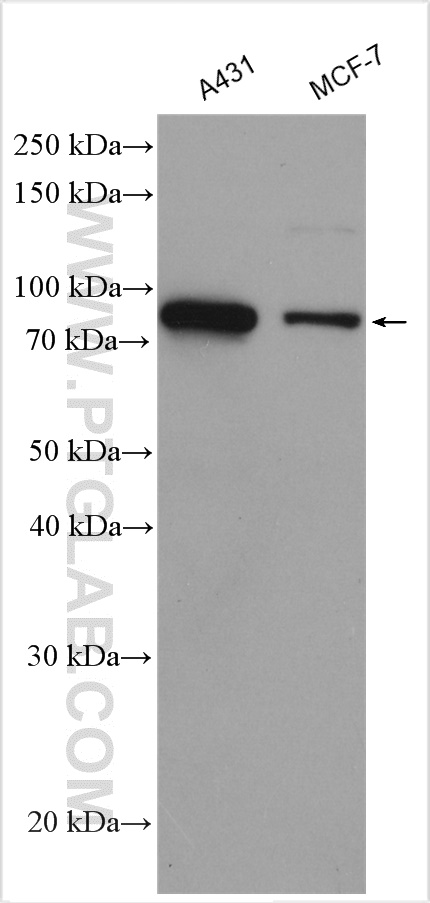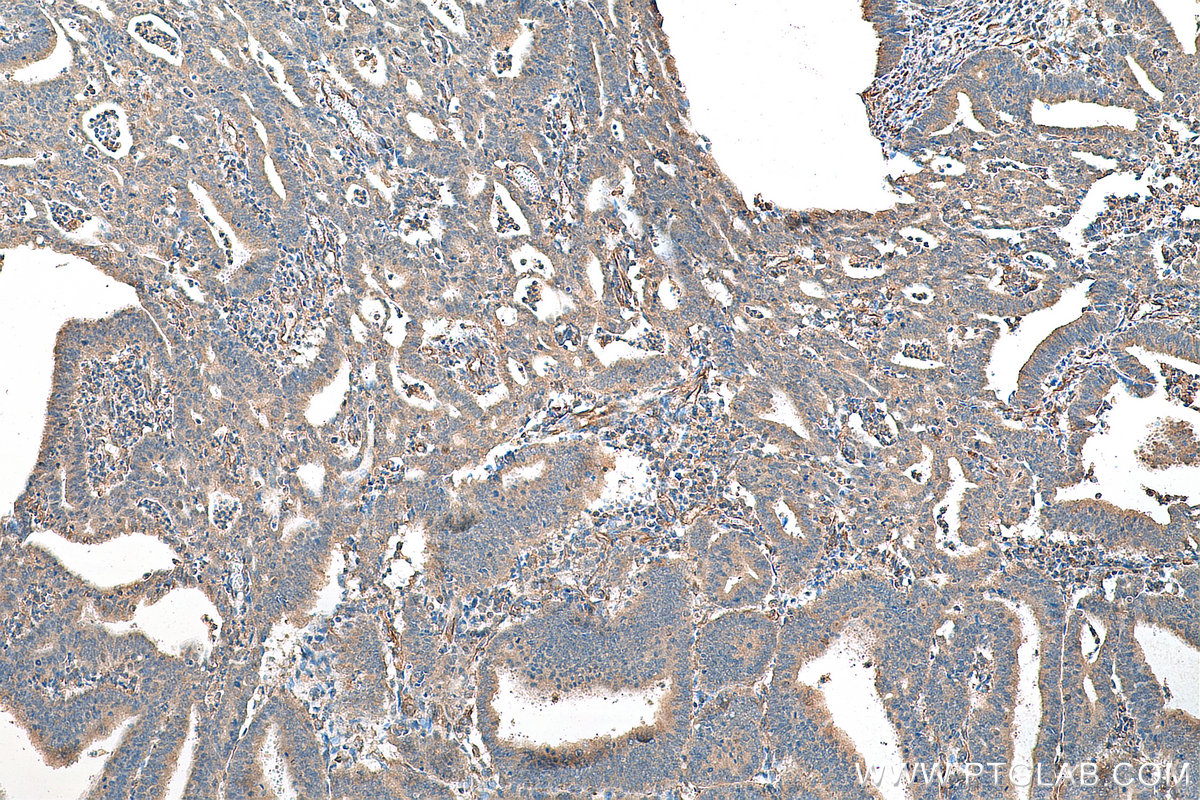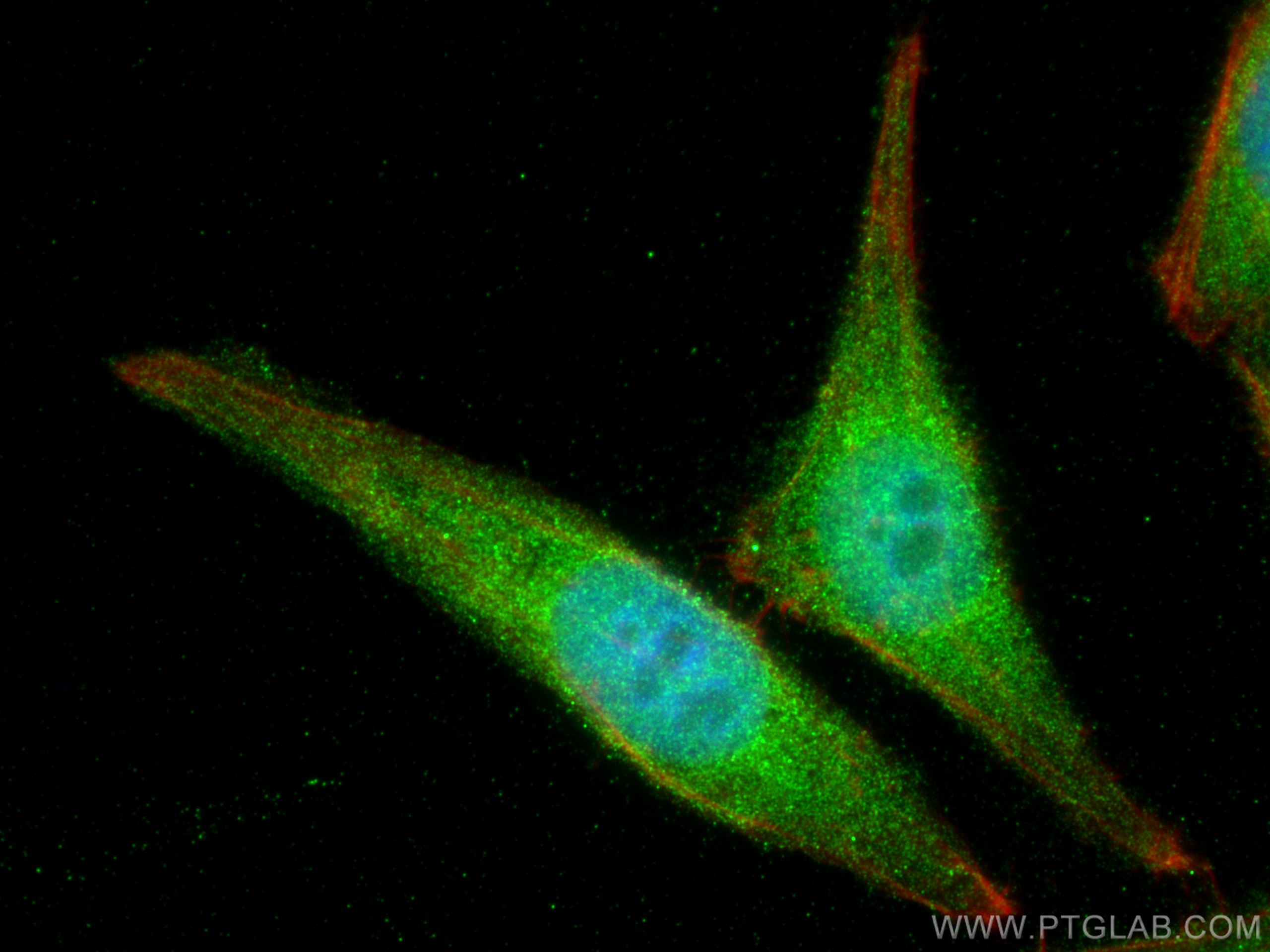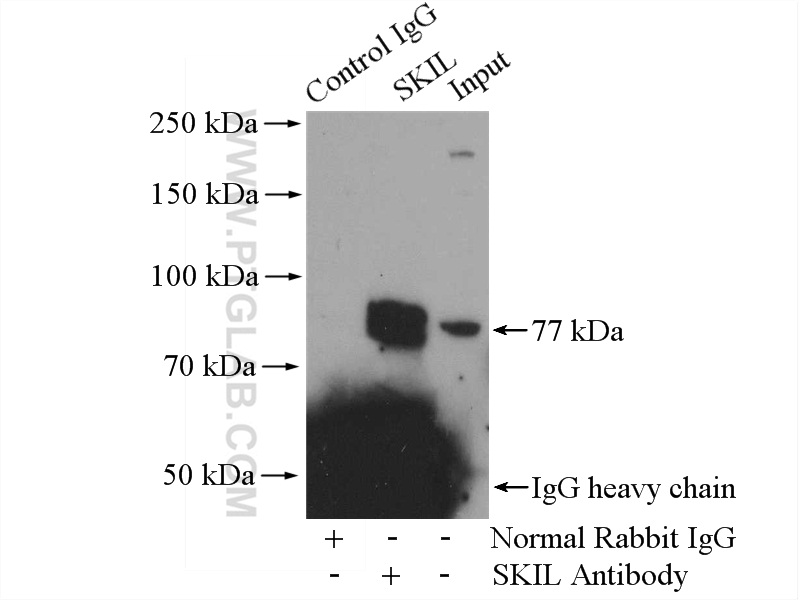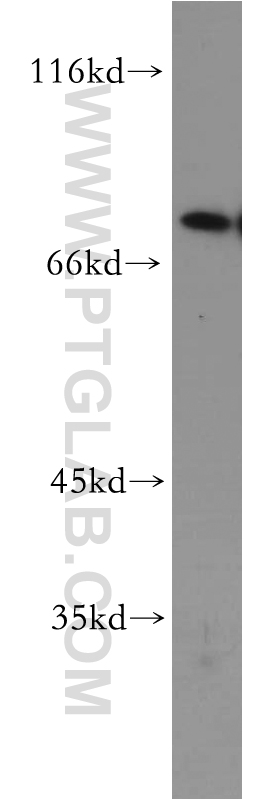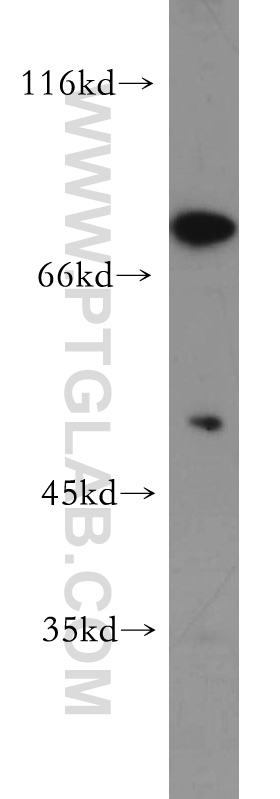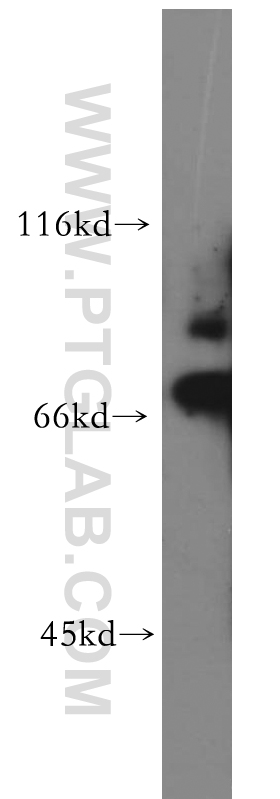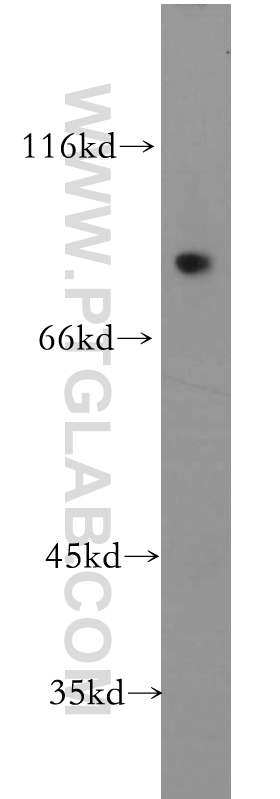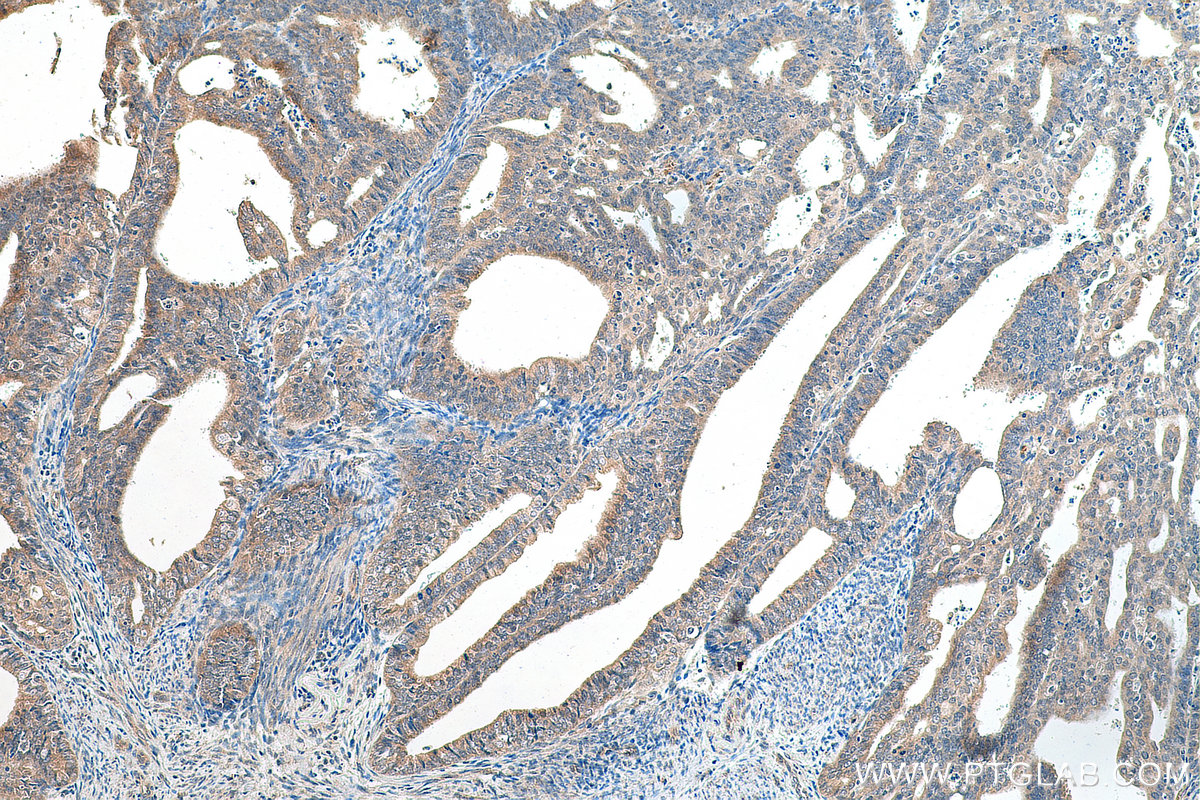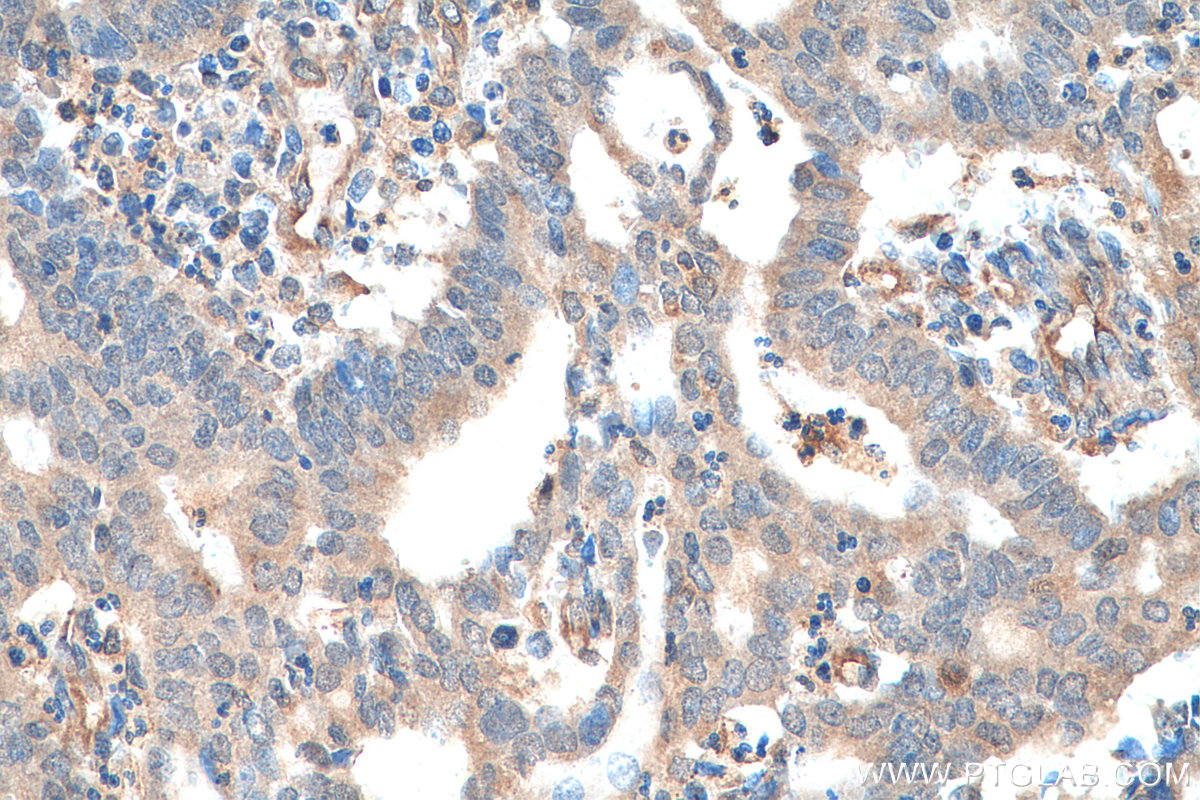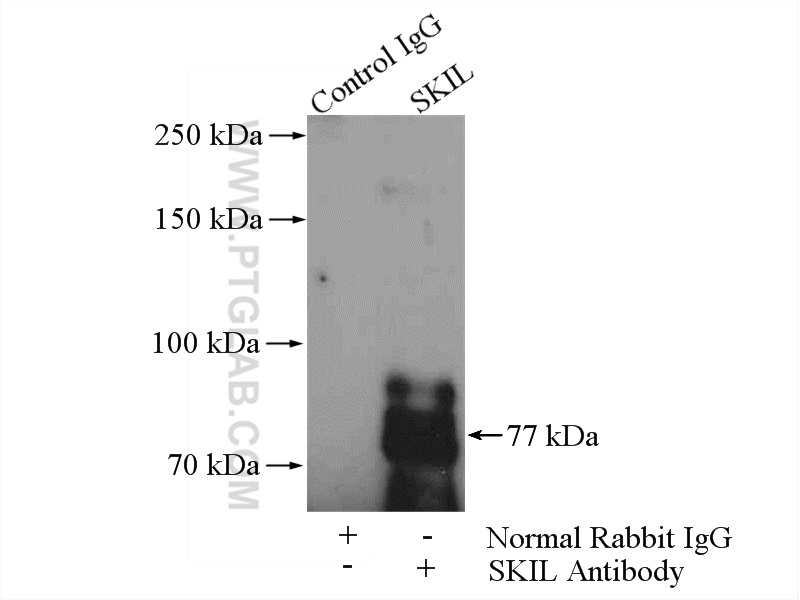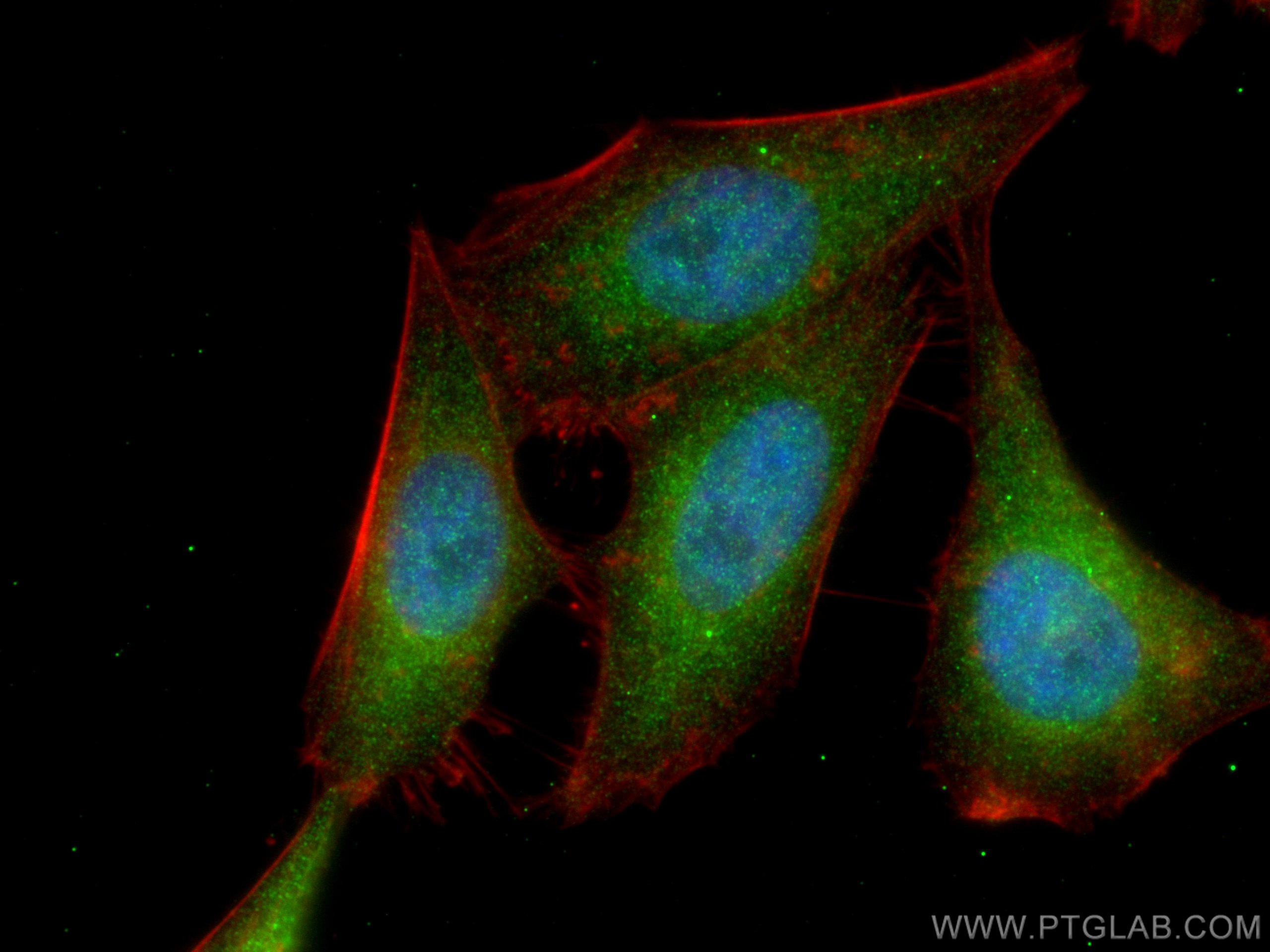验证数据展示
经过测试的应用
| Positive WB detected in | A431 cells, human skeletal muscle tissue, HepG2 cells, MCF-7 cells |
| Positive IP detected in | HepG2 cells |
| Positive IHC detected in | human endometrial cancer tissue Note: suggested antigen retrieval with TE buffer pH 9.0; (*) Alternatively, antigen retrieval may be performed with citrate buffer pH 6.0 |
| Positive IF/ICC detected in | HepG2 cells |
推荐稀释比
| 应用 | 推荐稀释比 |
|---|---|
| Western Blot (WB) | WB : 1:1000-1:8000 |
| Immunoprecipitation (IP) | IP : 0.5-4.0 ug for 1.0-3.0 mg of total protein lysate |
| Immunohistochemistry (IHC) | IHC : 1:50-1:500 |
| Immunofluorescence (IF)/ICC | IF/ICC : 1:50-1:500 |
| It is recommended that this reagent should be titrated in each testing system to obtain optimal results. | |
| Sample-dependent, Check data in validation data gallery. | |
产品信息
19218-1-AP targets SKIL in WB, IHC, IF/ICC, IP, CoIP, ELISA applications and shows reactivity with human samples.
| 经测试应用 | WB, IHC, IF/ICC, IP, ELISA Application Description |
| 文献引用应用 | WB, IF, IHC, CoIP |
| 经测试反应性 | human |
| 文献引用反应性 | human, mouse |
| 免疫原 |
CatNo: Ag5282 Product name: Recombinant human SKIL protein Source: e coli.-derived, PET28a Tag: 6*His Domain: 335-684 aa of BC059386 Sequence: YLGTPEEKKLKIILEEMKEKFSMRSGKRNQSKTDAPSGMELQSWYPVIKQEGDHVSQTHSFLHPSYYLYMCDKVVAPNVSLTSAVSQSKELTKTEASKSISRQSEKAHSSGKLQKTVSYPDVSLEEQEKMDLKTSRELCSRLDASISNNSTSKRKSESATCNLVRDINKVGIGLVAAASSPLLVKDVICEDDKGKIMEEVMRTYLKQQEKLNLILQKKQQLQMEVKMLSSSKSMKELTEEQQNLQKELESLQNEHAQRMEEFYVEQKDLEKKLEQIMKQKCTCDSNLEKDKEAEYAGQLAELRQRLDHAEADRQELQDELRQEREARQKLEMMIKELKLQILKSSKTAKE 种属同源性预测 |
| 宿主/亚型 | Rabbit / IgG |
| 抗体类别 | Polyclonal |
| 产品类型 | Antibody |
| 全称 | SKI-like oncogene |
| 别名 | SKI like oncogene, Ski like protein, Ski related oncogene, Ski related protein, SKIL, SNO, SnoA, SnoI, SnoN |
| 计算分子量 | 77 kDa |
| 观测分子量 | 77 kDa |
| GenBank蛋白编号 | BC059386 |
| 基因名称 | SKIL |
| Gene ID (NCBI) | 6498 |
| RRID | AB_10859824 |
| 偶联类型 | Unconjugated |
| 形式 | Liquid |
| 纯化方式 | Antigen affinity purification |
| UNIPROT ID | P12757 |
| 储存缓冲液 | PBS with 0.02% sodium azide and 50% glycerol, pH 7.3. |
| 储存条件 | Store at -20°C. Stable for one year after shipment. Aliquoting is unnecessary for -20oC storage. |
背景介绍
SKIL, also known as SnoN, is a mediator of the transforming growth factor-β (TGF-β) signaling pathway and exerts pro-oncogenic activity through inhibiting TGF-β/Smad pathway(PMID: 19114989). SKIL is involved in reduction of autophagy and subsequent tumor cell apoptosis in arsenic trioxide-treated promyelocytic leukemia and ovarian carcinoma. In addition, SKIL may regulate cell division or differentiation in response to extracellular signals.
实验方案
| Product Specific Protocols | |
|---|---|
| IF protocol for SKIL antibody 19218-1-AP | Download protocol |
| IHC protocol for SKIL antibody 19218-1-AP | Download protocol |
| IP protocol for SKIL antibody 19218-1-AP | Download protocol |
| WB protocol for SKIL antibody 19218-1-AP | Download protocol |
| Standard Protocols | |
|---|---|
| Click here to view our Standard Protocols |
发表文章
| Species | Application | Title |
|---|---|---|
Cell Death Differ PIAS1 and TIF1γ collaborate to promote SnoN SUMOylation and suppression of epithelial-mesenchymal transition. | ||
Clin Transl Med NSUN2 promotes colorectal cancer progression by enhancing SKIL mRNA stabilization | ||
J Med Chem Structure-Guided Design of a Small-Molecule Activator of Sirtuin-3 that Modulates Autophagy in Triple Negative Breast Cancer. | ||
J Neurosci The Transcriptional Regulator SnoN Promotes the Proliferation of Cerebellar Granule Neuron Precursors in the Postnatal Mouse Brain. | ||
Mol Cell Proteomics Quantitative ubiquitylome analysis reveals specificity of RNF111/Arkadia E3 ubiquitin ligase for its degradative substrates SKI and SKIL/SnoN in TGF-β signaling pathway | ||
Apoptosis SKI knockdown suppresses apoptosis and extracellular matrix degradation of nucleus pulposus cells via inhibition of the Wnt/β-catenin pathway and ameliorates disc degeneration.
|

